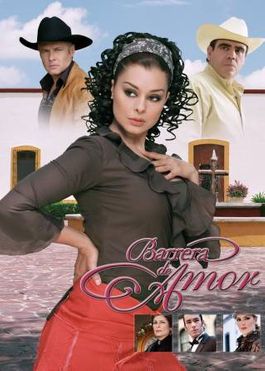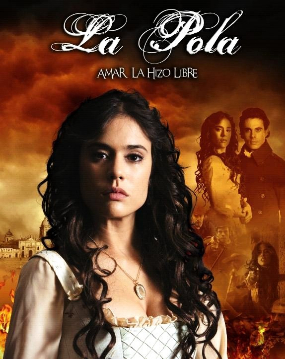Related Research Articles
Premio Nadal is a Spanish literary prize awarded annually by the publishing house Ediciones Destino, part of Planeta. It has been awarded every year on 6 January since 1944. The Josep Pla Award for Catalan literature is given at the same ceremony.

The LVI Legislature of the Congress of the Union of Mexico met from 1994 to 1997.

Barrera de amor is a Mexican telenovela produced by Ernesto Alonso for Televisa in 2005.
The National Prize for Arts and Sciences is awarded annually by the Government of Mexico in six categories. It is part of the Mexican Honours System and was established in 1945. The prize is a gold medal and 520,000 pesos.

Marisol is a Mexican telenovela produced by Juan Osorio for Televisa in 1996. Telenovela is a remake of the 1977 Mexican telenovela Marcha nupcial. Famous and beloved Enrique Álvarez Félix died after he finished his work in Marisol.

Sergio Bustamante was a Mexican actor of telenovelas, cinema, dubbing and theater.
Los Caudillos, is a Mexican telenovela produced by Televisa and originally transmitted by Telesistema Mexicano.
Events in the year 1999 in Mexico.
Por amor is a Mexican telenovela produced by Irene Sabido for Televisa in 1981. It is an original story by Rita Valencia and Manuel de la Rosa. It starred by María Sorté, Manuel Ojeda, Adriana Roel, Carlos Cámara, Chela Nájera and Salvador Sánchez.
Bianca Vidal is a Mexican telenovela produced by Valentín Pimstein for Televisa in 1982. Bianca Vidal was based on the soap opera María Salomé, original of Inés Rodena which was then elongated by Sacrificio de mujer from the same author.

El hotel de los secretos is a Mexican telenovela produced by Roberto Gómez Fernández for Televisa. It is an adaptation of the Spanish series Gran Hotel created by Ramón Campos, Gema R. Neira and Carlos Sedes.
El vuelo del águila is a Mexican telenovela produced by Ernesto Alonso and Carlos Sotomayor for Televisa in 1994–1995. Telenovela based on the Mexican soldier and President of Mexico Porfirio Díaz, from his name had come out the title "Época Porfiriana" or "Porfiriato" during the period of his rule, in the years 1876–1911.
Desencuentro is a Mexican telenovela produced by Ernesto Alonso for Televisa in 1997.

La Pola is a Colombian drama telenovela based on historical facts and directed by Sergio Cabrera for RCN Televisión. The series tells the political and loving life of Policarpa Salavarrieta, a woman who became one of the most important figures in the history of the Independence of Colombia for preferring death instead of submission. The series originally aired from September 13, 2010, to July 27, 2011.
The following squads were named for the 1927 South American Championship that took place in Peru.
The following squads were named for the 1937 South American Championship that took place in Argentina.
References
- ↑ "La antorcha encendida" (in Spanish). alma-latina.net. Archived from the original on August 5, 2011. Retrieved March 18, 2016.
- ↑ Amazon.com | La Antorcha Encendida (1996)